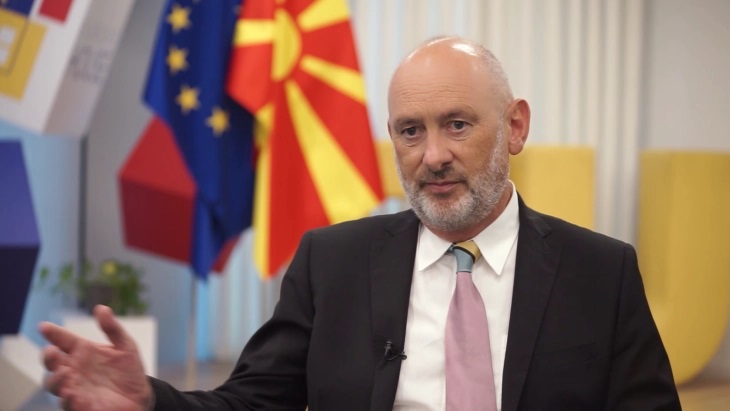Skopje – We welcome the commitment of the Government of North Macedonia to progress on the path to the EU, and we have already seen good progress, not only in some discussions we had about the reform agenda, which I think has advanced very positively, even in the short period since the Government, said Euroambassador David Geer.
Regarding the constitutional amendments, he points out that there is no will in Brussels to change the Negotiating Framework between the EU and North Macedonia, when there is already a “solution on the table”.
– You remember back in July 2022, I very carefully followed the negotiations that took place around autumn 2020 and that agreement that was reached on July 22 was not an easy process, for either side, compromises were made. And as a result, I think probably the best deal that could be made at that time was struck. Could this Government reach a better deal? I personally strongly doubt that. Of course, it is a matter between the two governments, but I very much doubt that it can be achieved. And I don’t see an appetite in Brussels for revisiting the negotiating framework, which is the basis of the negotiations. As I say, there is a solution on the table. It would be good now to move forward with that solution, said Geer in an interview for Radio Free Europe.
Euroambassador Geer says in the interview that loan agreements between EU member states and other countries are common, but there are no details about the loan from Hungary, agreed between the Macedonian and Hungarian Government.
-I cannot comment on the specific details of the loan because I have not seen it, and I am not even sure if it is fully concluded yet, so that is a separate matter. But yes, there are examples of member states giving government-to-government loans, to third countries, concessional loans directly to the budget. This is a practice that exists within the European Union, adds Geer. (July 28)
 go to the original language article
go to the original language article
